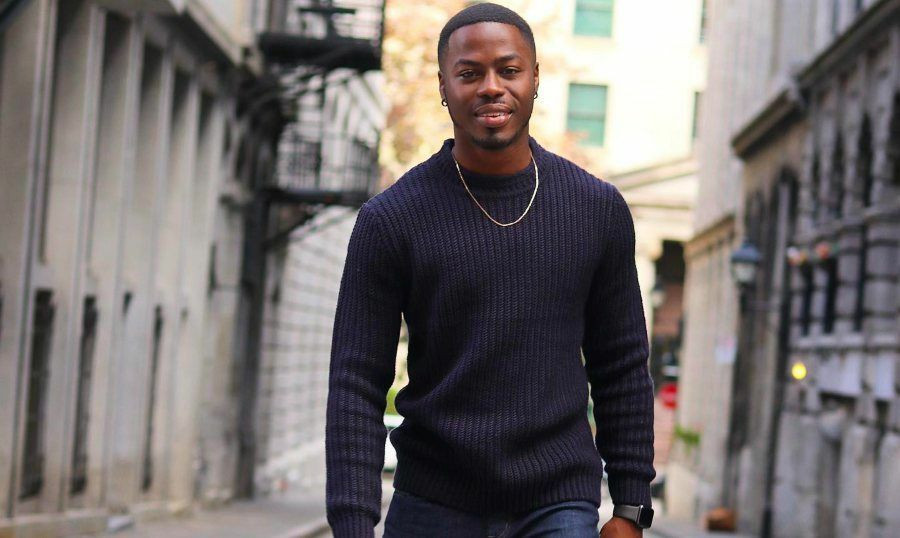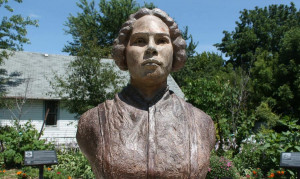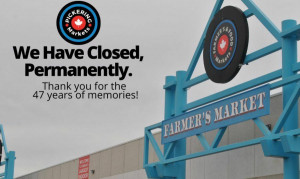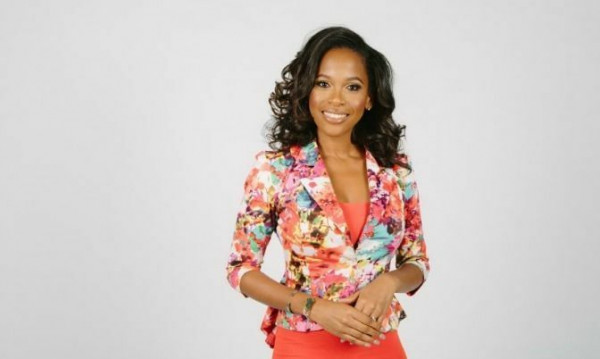"This has never been done in this country before, and I'm so excited to have such a strong team who've put their blood, sweat, and tears into building The Brandon Gonez Show. But most importantly, I am excited for people to finally have a show where they see themselves reflected, laugh, and get the news and entertainment they need. I am so humbled to see the support from my fellow Canadians," says Gonez.
Gonez was working as a reporter and news anchor at CP24 up until December 23rd when he decided it was time to leave the network. Even at this relatively early stage in his career, Gonez has already lived and worked in British Columbia, Saskatchewan, and Ontario. He’s also reported the news to Canadians on a national stage as a member of CTV’s Your Morning’s crew.
In addition to his reporting, Gonez has made a name for himself with his moments of on-air humour, many of which have gone viral. He’s received a lot of admiration for his quips but he insists that it’s just the way he is. But despite Gonez’s winning smile and positive outlook, his career hasn’t been without adversity.
He’s experienced racism both in Canada and the United States. He’s been met with push back when he’s wanted to push the boundaries in the newsroom. And he’s felt the pressure that’s familiar to many Black journalists who’ve felt obligated to pitch news stories about the Black community as one of the few Black staff members.
I spoke to Gonez a day before he announced he was leaving CP24, and at his request, we agreed not to discuss CP24. We started our conversation by talking about receiving his award from AfroGlobal TV last month.
Congratulations on receiving your first AfroGlobal TV Rising Star award, what does that achievement mean to you?
It feels like validation. It feels like the hard work is being noticed. And it's not that I need validation but there's something comforting knowing that the community, especially the Black community, is recognizing the hard work that’s gone into getting to this point. And for existing in the white space that is mainstream media.
What was it that first drew you to journalism and what do you enjoy most about it?
I've always had this fascination with telling people's stories and trying to figure out the “why” of why things that are happening. Then diving deeper into how things are happening the way they are and what can we do to fix things that are broken, whether that's in society or whatever. Those questions really manifested when I was at the end of high school and going into university.
I started this blog with one of my friends and it was an outlet for me to speak with people on the streets of Toronto and the GTA, to hear what's happening. It was just a random idea. I was in a communications program when I first went to York University, and I wasn't feeling satisfied. So I had the idea to start this online thing just as a way to pass time in our free time. That’s when I started to get that bug. I was like “Oh, I like this. I like what this feels like, I like asking these questions. I like the fact that people trust me to tell their story,” and it just took off from there.
I’ll never forget it, I saw this little poster while I was walking through the hallways of York, and York has a small Seneca campus there where they have their broadcast journalism school. Seneca put up flyers and I remember seeing this flyer saying, “Are you interested in journalism? Do you like asking questions?” I remember thinking to myself, “Yeah!”. So, flyers work, [laughs] they actually work!
You were at CTV’s Your Morning for a year-and-a-half before you started at CP24, and when you left you received a beautiful sending-off. From the few clips I’ve seen, it looks like you had a great time being there and the team really liked having you. What was it like to leave that show?
Your Morning was an experience that I'll never forget because it opened my eyes to what's possible in Canadian media. And also, to what's possible when you really work hard because it’s a national show. Jumping from a mid-market like CTV News Barrie into the national morning show for the number one network in the country was a little bit nerve-wracking. But then I thought “okay, you're doing something right here. But what am I going to do to make a difference?”
What I really enjoyed about being there was working with amazing journalists like Anne-Marie Mediwake, somebody who I grew up watching. I enjoyed cementing my craft, and doing things differently and exposing Canadians from coast to coast to a culture that they may have never been a part of. Leaving the show meant knowing that that representation wasn't going to be there anymore.
Reading through comments and Reddit threads is usually disastrous but I’ve seen people say that you have good energy, that you look like you enjoy your job, that you don’t seem like a robot reading a teleprompter what do comments like that mean to you?
It feels weird sometimes because what you see on TV is what you get when you meet me in person. With my closest friends and my family, we joke about the little quirks that I do. A lot of things that you see me do, that's just how I talk. That's how my friends talk, that’s how people in my family talk. So when people take to that, I feel like it’s because they relate to it or they operate in the same way. They see that in their own brother or in their child. And it just shows the need to see more of this. We’re in Canada, we need to see more of that, it shouldn’t just be one person. I think there’s so much talent out there but then why aren't we seeing a better reflection, a more accurate reflection of who we are as a people?
Why is it so important to have that representation and diversity when it comes to the media?
Because the media is a reflection of who we are as a society. The media is the lens through which we see ourselves, and if we don’t represent the audience or tell their stories then we’re not telling an accurate story about who we are as a people.
I wanted to go back to what you were saying earlier about your quirks and the things that you're so well known for. You said that those are bits of your personality and it’s not a gimmick or a character that you're becoming. That’s something that you've received a lot of praise for, especially from the Black community, like when you casually drop some patois. And there’s this idea that you’re not trying to minimize your Blackness, if I can put it that way. How does it feel to be able to be yourself as a Black man in your role as a prominent on-air personality?
It hasn't come easy. I think for a lot of people watching there might be the perception that I have a free-for-all platform to just do what I want to do but that's not necessarily the case. That’s come with pushing the boundaries to get here. But it also comes with building a trust that you can tell a story.
At the end of the day what comes first is “are you a good journalist?” Once you have that basic down packed, and I would tell this to any new journalist as well, I would say the most important thing is making sure that you can do your craft well. Once you’ve perfected your craft, then add you to that. But you don't want to add you and then your craft is not your craft is not up to par or it's not doing what it needs to do.
It’s been a long road to get here. When I look back at the time I was working in western Canada, just starting off, I think, “Who is that guy?!” That guy was just putting on, just trying to be what he thought a reporter should be. But I also realized I was just trying to build a foundation and making sure that I was doing the craft the best that I could do. Then once I felt comfortable in that I could feel comfortable being myself as well.
When you were in those smaller markets thinking about pressing boundaries or you realized that there's a boundary that needs to be pushed, who were the people you’ve gone to for mentorship or advice to help you navigate those experiences?
It’s tough because you're looking for people who look like you in this industry, you have so few examples. But one person that has been a solid rock in the industry and who I consider a mentor is Marci Ien. As many people know, she's done a 180 and had a major switch-up in her career. It’s beautiful to see people take risks and have it pay off, and not just speak about change but now putting that into action. But that is a person who has been … I don't think there are words that can describe how important and how much of a rock and a mentor that Marci has been during my career.
I spoke to her two weeks after she became an MP and you do get the feeling that she cares about her job and she cares about people. Your comment about her being a mentor for Black journalists is a role that she takes on with a lot of pride. With the transition that she made jumping into politics, is that something that you could see yourself doing in the future?
Oh, Marcus! [laughs] You know, I'm happy with my career choice right now. But I always say this, you never know what the universe or what God has in store for your life. So I'm open to whatever doors open in the future. But I feel like I still got a lot of work left to do in journalism.
That’s fair. Well, if you do decide to do it, I will be watching. Hopefully, I can get an exclusive interview. You and Marci were on #ShareYourChair special episode of The Social this summer, and you spoke about the fact that racism in Canada tends to happen at an institutional and a systemic level so it can be harder to see and also harder to combat. What role does the media have in explaining the complicated issue of race?
See, that's where representation is so important because exposing those stories requires time and it requires dedication. And it requires authenticity in storytelling as well. Meaning that it's pivotal for newsrooms to have people who come from different backgrounds, like different economic backgrounds. And I'm not even just talking about on camera, I'm talking about positions like producers and news directors and managing editors.
Because a lot of times it's those people who choose the editorial direction of a story. And it's those people who choose what gets put on a newscast or what goes to air and what doesn't. So, there's been a large focus on displaying more representation on screen and yes, that is so important but behind the screen is just as important.
Have you ever felt pressure or an obligation to bring up stories that have to do with the Black community because you are a Black journalist?
100%. I think that's a pressure that every Black journalist feels because they know the struggle of what it took to get to where they are, and they know the struggle of the community. And they journey, they know how hard the community is working to uplift and change the way that things are right now. So, when you do get in a position where you have a platform, where you can shine a microscope on issues and share it with a broad audience, how can you not take that opportunity? But there is a pressure and a burden that also comes with that. Especially when you look at a city like Toronto.
When you look at how many Black men are television reporters, there are only three young ones in the city of Toronto right now; myself, Brandon Rowe from City News who's a great friend of mine and outstanding journalist, and Tyrone Edwards from eTalk. And then you look at Dwight Drummond who’s anchoring the six o’clock news with CBC. And Nathan Downer who’s anchoring CTV news at six. And I’m just talking about Black men, talking about Black women is a whole different conversation we also need to have. But that’s it on TV in the city of Toronto.
This past summer we had the death of George Floyd and the resurgence of the Black Lives Matter movement. Then you have statistics coming out both Canada and the States about the fact that the COVID-19 virus has disproportionately affected Black people. When you have those negative news stories that are from or about the Black community, how do you go about dealing with that and not letting the heaviness of those stories affect you too negatively?
Personally, I haven't found the right balance yet. Because I have family who live in the States and I’ve had my own experiences in the States and my own experiences here in Canada as well. I can only speak for myself but don't care how much money you make, what income bracket you come from, what neighbourhood you live in, discrimination can affect each and every one of us. It affects the wealthiest Black men and the poorest Black men, it’s still discrimination and it’s still not right. So for me, it will never sit well within my heart until it's actually eradicated.
Being a Black journalist myself I know I've definitely carried some of the heaviness of stories with me, and been hurt by them, so thank you for sharing that. I do want to switch over to some lighter topics though. You've had a number of viral moments in the time that you've been at CP24. Do you have any stories related to any of the viral moments that you've had?
The stories are kind of just how they unfold on TV. Like I said, what you see is what you get. So even when the cameras are not rolling, I like to joke around with my cameraman because we need to have a good time working because sometimes we’re dealing with really tough stories and you have to find humour or else you’ll find yourself in a dark place. A lot of times these guys behind the screen are hilarious. They’re hilarious but we don't get the chance to turn the camera on them. So whenever they're making me laugh I feel like why not share it with the city because these are difficult times and everybody can use a bit of positivity. Some people say I do too much but I’m a social person, I don't know, maybe I'm an oversharer. But that’s just who I am, I can’t change it.
As a reporter, you are kind of on the front lines. What has it been like reporting through the pandemic and reporting about the pandemic these past couple of months?
You know, I’ve got to give it up to people who go to work every single day and are actually in it, like healthcare workers, retail workers and people who work in long term care homes. They're literally putting their lives on the line. Like if they work in manufacturing they don't have the option not to go to work because their jobs don't provide them with the ability to work from home. I think we're starting to see who's most at risk in society when things like this take place. Now you're starting to realize the value that they deserve to be paid and their worth. And I hope once we've got through this pandemic we put more value on the people who go in day in and day out and literally put their blood, sweat and tears to keep us going I don't think we appreciate it and the sacrifice that they’ve made or how important these people’s jobs are.
The last question that I wanted to ask you today is are there any stories from this past year that stand out in your mind, whether it's a particularly good story or a bad story?
Oh, there are a couple. The Black Lives Matter protests I think were a huge eye-opener, for average Canadians or non-Black Canadians, I should say. And I think that story is a defining moment not just for this year but what will set the tone for this decade. A lot of people will say they hate 2020 and everything has been bad about and I was one of those people. This year, wow, it's just been a lot but I also am starting to come to the belief and the realization that maybe we needed a year like this to do a reset in terms of how we operate as a society because it wasn't working for most people.
It's only until we had a moment of self-reflection and a moment of pause that it was right in our faces that we’ve got to change things here. What people are saying in terms of the discrimination that exists, the lack of opportunity, those things are real. So, I'm just hoping that the story will continue and that it won't stay stagnant in terms of reporting on the story. I'm hoping that as we progress throughout this decade, the story is going to evolve into starting to report on the actual changes that are happening.
#TheBGShow will host its official Instagram LIVE launch party @brandongonez on January 16th at 8 pm (EST) with exciting special guest appearances.

 By
By 






